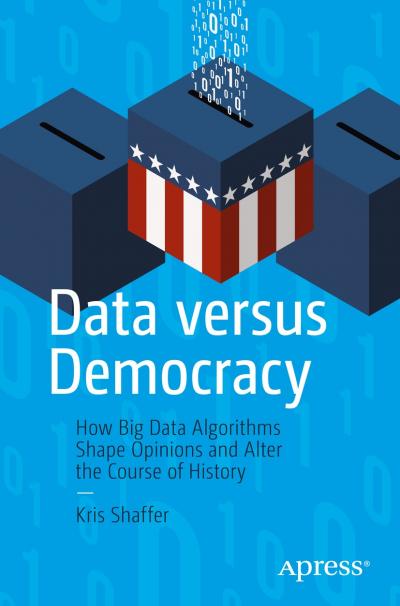New book explores how content recommendation systems confirm our biases by showing us only what they predict we want to see

Credit: Springer Nature
Human attention is in the highest demand it has ever been. In contrast to a few decades ago, we are now confronted with an ever increasing volume of information that is literally available at our fingertips. Using algorithms to filter information tailored to each individual user seems to offer a technological solution to a social and informational problem. But content recommendation systems have also created a bigger, unforeseen crisis. Kris Shaffer’s book, Data versus Democracy, investigates how, in the era of social media, human cognition, algorithmic recommendation systems and human psychology work together to reinforce and exaggerate human bias.
Over seven chapters, Shaffer analyzes pivotal concepts such as algorithmic recommendations, clickbait, familiarity bias and propaganda. He also supports his arguments using timely case studies like the 2016 US presidential election, the Ferguson Unrest and the GamerGate controversy. Shaffer describes how when algorithms are backed by bias, they can shift media narratives, shape worldviews and influence possibly oblivious consumers. Data versus Democracy offers advice to anyone curious about how social media algorithms work and how they can be manipulated to influence culture.
“We live in a culture vastly different from any that has come before. In a society where engagement is currency, we are the product. Understanding the value of our attention, how organizations operate based on this concept, and how engagement can be used against our best interests is essential in responsibly equipping ourselves against the perils of disinformation,” says Shaffer.
###
Kris Shaffer, Ph.D., is a data scientist and Senior Computational Disinformation Analyst for New Knowledge. He co-authored “The Tactics and Tropes of the Internet Research Agency,” a report prepared for the United States Senate Select Committee on Intelligence about Russian interference in the 2016 US presidential election on social media. He has worked as a consultant for multiple US government agencies, non-profits, and universities on matters related to digital disinformation, data ethics, and digital pedagogy.
Kris Shaffer
Data versus Democracy
How Big Data Algorithms Shape Opinions and Alter the Course of History
2019, 120 p. 2 illus.
Softcover €26,74 | £22.99 | $27.99 | ISBN 978-1-4842-4539-2
Also available as an eBook
Media Contact
Kevin Grant
[email protected]
Original Source
https:/



